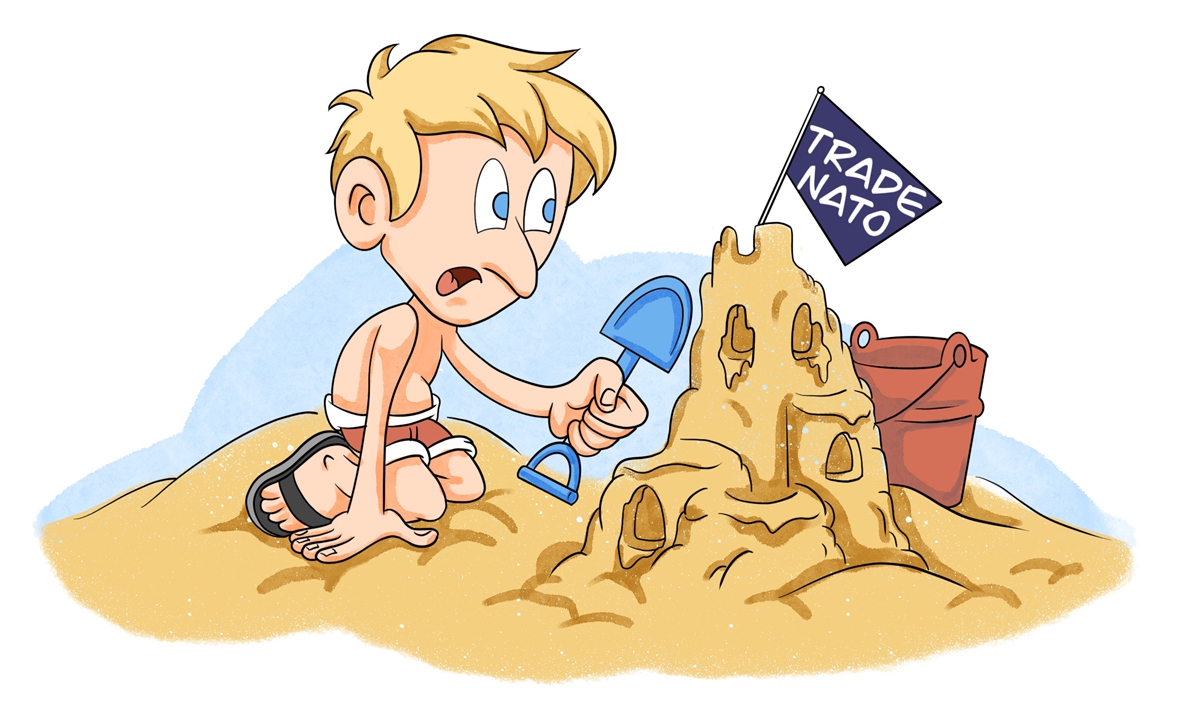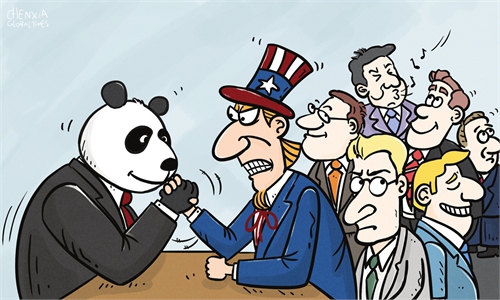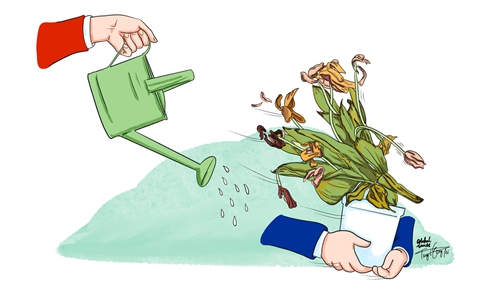COMMENTS / EXPERT ASSESSMENT
‘NATO for trade’ goes against economic rules, consensus unlikely

Illustration: Tang Tengfei/GT
Hawkish British politicians and a US industrial lobby group have called on Western allies to form a "Nato for trade" to counter China on the trade front, the South China Morning Post reported.
In the new paper "NATO for trade," which was commissioned by a UK-based China Research Group (CRG) and a US-based Information Technology and Innovation Foundation (ITIF), Robert Atkinson, founder of the ITIF, said that democracies should develop their own strategy to compete with Chinese industrial and trade policy.
It's no surprise that some Western politicians would cook up an idea along the lines of NATO for trade targeting China. In fact, the concept is nothing new. During the tenure of former US President Barack Obama, the US and EU had negotiated on the partnership agreement on trade and investment - Transatlantic Trade and Investment Partnership (TTIP), which was viewed by some observers as an economic equivalent NATO.
Different from TTIP, NATO for trade apparently is designed to target China amid the US' intensifying decoupling against the world's second largest economy and the EU's emphasis to diversify its trade relations. While the US has spared no efforts to attack and smear China in a scheme to squeeze China out of global industrial chain, some European politicians are hyping to reduce trade dependence on China. As competition between China and the US intensifies, the trend is set to be further underscored.
Essentially, the NATO for trade proposal is to leverage economic coercion against China under the guise of dealing with the so-called economic coercion from China. Based on a groundless accusation, the plan is politicizing economic and trade issues using a Cold War mentality. It is hard for the West to reach consensus on the ill-intentioned plan which relies on such outdated thinking.
NATO was formed in 1949. Under NATO rules, members agree to defend any one of them that comes under attack. It will lose legitimacy if those anti-China politicians try to extend the consensus to other areas, not to mention the highly globalized trading sector, in which China has become the largest trading partner of more than 120 economies.
When the US and EU negotiated on the TTIP, they were more focused on resolving the trade disputes between participating nations. Since US President Joe Biden took the office, he has been signaling his intention to unite European allies to form a US-led small clique, but months on, major trade problems between the US and Europe remains unresolved.
For instance, the conflict over steel and aluminum imports, which was left behind by the Trump administration's trade wars, is still posing a serious burden on trans-Atlantic relations. The EU knows well that Washington will not make real concessions. If the EU really aligns with the US on trade issues against China, then the US will most likely point its gun at the EU in the next step.
It is reasonable for the EU and other countries in the world to jointly promote the reform and improvement of the multilateral trading system with the WTO as the core, because this is the only reasonable way to meet the requirements of global development and promote trade growth. If Western countries to build an anti-China clique in trade misled by anti-China politicians, this is exactly the most harmful thing to world trade and their own national interests.
The author is director of the Department of European Studies, China Institute of International Studies. bizopinion@globaltimes.com.cn


